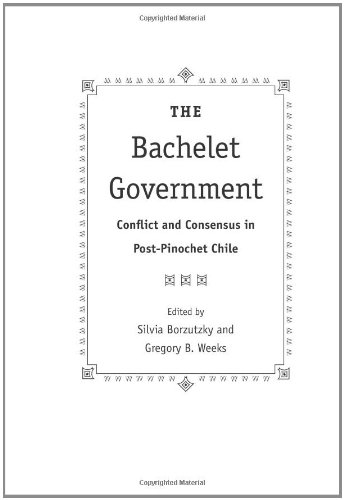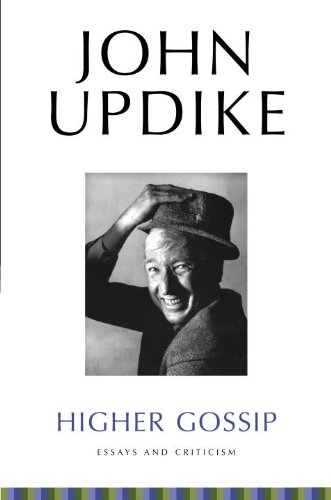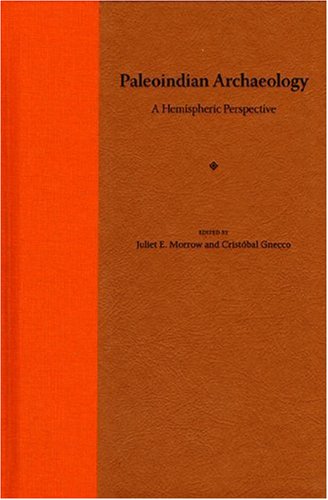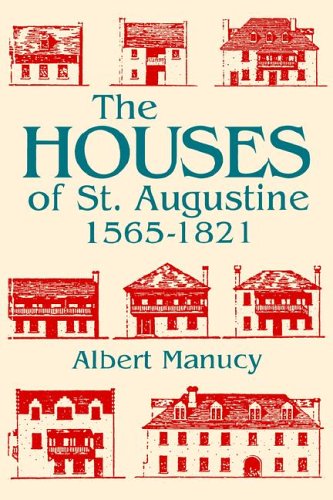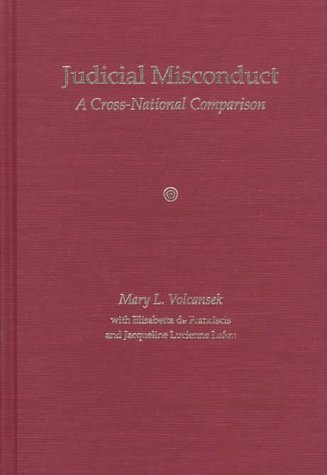Free Ebook We Are Our Brains: A Neurobiography of the Brain, from the Womb to Alzheimer's, by D. F. Swaab
Knowing the method how to get this book We Are Our Brains: A Neurobiography Of The Brain, From The Womb To Alzheimer's, By D. F. Swaab is likewise important. You have actually remained in right site to begin getting this info. Get the We Are Our Brains: A Neurobiography Of The Brain, From The Womb To Alzheimer's, By D. F. Swaab web link that we offer right here as well as visit the link. You could purchase guide We Are Our Brains: A Neurobiography Of The Brain, From The Womb To Alzheimer's, By D. F. Swaab or get it as soon as feasible. You could promptly download this We Are Our Brains: A Neurobiography Of The Brain, From The Womb To Alzheimer's, By D. F. Swaab after getting deal. So, when you require the book quickly, you can straight receive it. It's so simple and so fats, right? You must choose to through this.
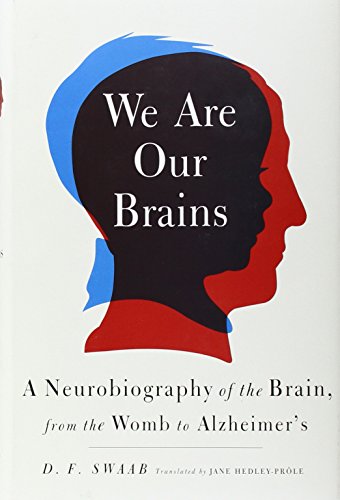
We Are Our Brains: A Neurobiography of the Brain, from the Womb to Alzheimer's, by D. F. Swaab

Free Ebook We Are Our Brains: A Neurobiography of the Brain, from the Womb to Alzheimer's, by D. F. Swaab
Book enthusiasts, when you require a brand-new book to review, find guide We Are Our Brains: A Neurobiography Of The Brain, From The Womb To Alzheimer's, By D. F. Swaab here. Never ever worry not to discover just what you require. Is the We Are Our Brains: A Neurobiography Of The Brain, From The Womb To Alzheimer's, By D. F. Swaab your required book now? That's true; you are actually a good user. This is a best book We Are Our Brains: A Neurobiography Of The Brain, From The Womb To Alzheimer's, By D. F. Swaab that comes from wonderful writer to show you. Guide We Are Our Brains: A Neurobiography Of The Brain, From The Womb To Alzheimer's, By D. F. Swaab offers the best encounter and lesson to take, not only take, yet additionally find out.
There is no doubt that publication We Are Our Brains: A Neurobiography Of The Brain, From The Womb To Alzheimer's, By D. F. Swaab will still give you inspirations. Also this is just a book We Are Our Brains: A Neurobiography Of The Brain, From The Womb To Alzheimer's, By D. F. Swaab; you can find many categories as well as sorts of books. From amusing to adventure to politic, and sciences are all supplied. As what we state, here our company offer those all, from famous writers and also publisher in the world. This We Are Our Brains: A Neurobiography Of The Brain, From The Womb To Alzheimer's, By D. F. Swaab is among the compilations. Are you interested? Take it currently. How is the method? Read more this short article!
When somebody ought to visit the book shops, search shop by establishment, rack by rack, it is quite frustrating. This is why we supply guide compilations in this internet site. It will alleviate you to look guide We Are Our Brains: A Neurobiography Of The Brain, From The Womb To Alzheimer's, By D. F. Swaab as you such as. By looking the title, author, or authors of the book you desire, you could locate them quickly. In your home, workplace, or even in your way can be all finest area within web connections. If you want to download the We Are Our Brains: A Neurobiography Of The Brain, From The Womb To Alzheimer's, By D. F. Swaab, it is extremely easy then, due to the fact that currently we extend the link to acquire and make deals to download We Are Our Brains: A Neurobiography Of The Brain, From The Womb To Alzheimer's, By D. F. Swaab So simple!
Interested? Of course, this is why, we suppose you to click the link web page to see, and afterwards you could enjoy the book We Are Our Brains: A Neurobiography Of The Brain, From The Womb To Alzheimer's, By D. F. Swaab downloaded and install until completed. You could save the soft data of this We Are Our Brains: A Neurobiography Of The Brain, From The Womb To Alzheimer's, By D. F. Swaab in your gizmo. Obviously, you will bring the device anywhere, won't you? This is why, every single time you have leisure, each time you can enjoy reading by soft duplicate book We Are Our Brains: A Neurobiography Of The Brain, From The Womb To Alzheimer's, By D. F. Swaab

A vivid account of what makes us human.
Based groundbreaking new research, We Are Our Brains is a sweeping biography of the human brain, from infancy to adulthood to old age. Renowned neuroscientist D. F. Swaab takes us on a guided tour of the intricate inner workings that determine our potential, our limitations, and our desires, with each chapter serving as an eye-opening window on a different stage of brain development: the gender differences that develop in the embryonic brain, what goes on in the heads of adolescents, how parenthood permanently changes the brain.
Moving beyond pure biological understanding, Swaab presents a controversial and multilayered ethical argument surrounding the brain. Far from possessing true free will, Swaab argues, we have very little control over our everyday decisions, or who we will become, because our brains predetermine everything about us, long before we are born, from our moral character to our religious leanings to whom we fall in love with. And he challenges many of our prevailing assumptions about what makes us human, decoding the intricate “moral networks” that allow us to experience emotion, revealing maternal instinct to be the result of hormonal changes in the pregnant brain, and exploring the way that religious “imprinting” shapes the brain during childhood. Rife with memorable case studies, We Are Our Brains is already a bestselling international phenomenon. It aims to demystify the chemical and genetic workings of our most mysterious organ, in the process helping us to see who we are through an entirely new lens.
Did you know?
• The father’s brain is affected in pregnancy as well as the mother’s.
• The withdrawal symptoms we experience at the end of a love affair mirror chemical addiction.
• Growing up bilingual reduces the likelihood of Alzheimer’s.
• Parental religion is imprinted on our brains during early development, much as our native language is.
Praise for We Are Our Brains
“Swaab’s ‘neurobiography’ is witty, opinionated, passionate, and, above all, cerebral.”—Booklist (starred review)
“A fascinating survey . . . Swaab employs both personal and scientific observation in near-equal measure.”—Publishers Weekly (starred review)
“A cogent, provocative account of how twenty-first-century ‘neuroculture’ has the potential to effect profound medical and social change.”—Kirkus Reviews
- Sales Rank: #93071 in Books
- Published on: 2014-01-07
- Released on: 2014-01-07
- Original language: English
- Number of items: 1
- Dimensions: 9.60" h x 1.20" w x 6.50" l, 1.65 pounds
- Binding: Hardcover
- 448 pages
From Booklist
*Starred Review* The human brain weighs a modest three pounds and has an energy consumption equivalent to a lowly 15-watt electric lightbulb. But it also comprises 100 billion nerve cells (neurons) and boasts amazingly complex hard-wiring (1,000 times 1 billion neuronal connections). Dutch physician and neuroscientist Swaab artfully explains how the organ’s design and functioning are a biological masterpiece as well as the source of our mind and identity. Brain research is genuinely a quest to find ourselves. Swaab probes the normal psychology, anatomy, and physiology of the brain—early development, intelligence, memory, moral behavior, neurochemistry, and consciousness. He also explores how the brain malfunctions—autism, schizophrenia, Parkinson’s disease, anorexia nervosa, vegetative states, and dementia. When it comes to love and sex, the brain is clearly the boss: Sex starts and ends in the brain, Swaab writes. The brain provides orgasm as a reward. He describes Alzheimer’s disease as a demolition of the brain and the sport of boxing as neuropornography. The most interesting and controversial chapter is Neurotheology: The Brain and Religion. Here he postulates that praying might be a placebo for oneself and notes that the score for spirituality matches up with the quantity of serotonin receptors in the brain. Swaab’s neurobiography is witty, opinionated, passionate, and, above all, cerebral. --Tony Miksanek
Review
“Swaab’s ‘neurobiography’ is witty, opinionated, passionate, and, above all, cerebral.”—Booklist (starred review)
“A fascinating survey . . . Swaab employs both personal and scientific observation in near-equal measure.”—Publishers Weekly (starred review)
“A cogent, provocative account of how twenty-first-century ‘neuroculture’ has the potential to effect profound medical and social change.”—Kirkus Reviews
About the Author
D. F. Swaab is an internationally renowned researcher in neuroscience and a professor of neurobiology at the University of Amsterdam. He is the founder of the Netherlands Brain Bank, which supplies the international research community with clinical and neuropathological brain tissue, and he currently leads the Neuropsychiatric Disorders research team at the Netherlands Institute for Neuroscience. In 2008, Professor Swaab received the Medal of the Royal Netherlands Academy of Arts and Sciences for his significant role in national and international neuroscience.
Most helpful customer reviews
31 of 34 people found the following review helpful.
Monumentally Important Reality Check & Myth Buster
By David Wineberg
DF Swaab's book on the brain is a revelation. He uses this lifelong passion for neurology to strip away the falsehoods. The details of the state of our knowledge is up to the minute, right from the front lines of research. It's a breeze to read, but it's still a tough slog. It's not filled with overwhelming five dollar words, but there is so much to absorb in every paragraph, I found myself constantly going back to make sure I got it all and got it right. Its importance to everyday understanding of ourselves is towering.
The book is structured along the lines of life, from conception to death and all the different ways the brain performs at the various stages. And it is demonstrably different at every age. The description of the unborn's connection to the mother's brain is alone worth the price of admission.
I particularly appreciated Swaab's debunking of "pseudoscientific mumbo jumbo" such as homosexuality being a chosen, learned, environmental condition (including overbearing, dominant mothers), or any number of other diseases and conditions that are also entirely programmed before birth and develop later. Environment can make absolutely no difference, he says.
The brain is not fully formed at birth and doesn't reach its full size, shape and structure until our mid 20s. It does continue to grow, it can repair itself and it does compensate for damage, despite our being taught that we peak at age 16 and brain cells just die off from that point and are never replaced.
Another "fact" we have backwards is that difficult births cause brain development problems. Swaab shows it is precisely the other way around: difficult labor/births are consequences of brain development problems. This frank, direct information is sadly lacking in general circulation.Some other tidbits along the way:
-It was not until 1940s that scientists discovered the brain produced hormones, and doctors castigated and vilified Ernst and Berta Scharrer for making such an absurd claim.
-Eye contact between two women leads to more creative outcomes. Eye contact by men prevents them coming to terms.
-Given dolls and toy cars, baby monkeys always choose according to gender - dolls for females, cars for males.
-The brains of rabbits raised in hutches are 15-30% smaller than in wild rabbits that develop their wits and skills - Charles Darwin, 1871
-Segregating children in belief-based schools is "pernicious". It not only prevents them from learning how to think critically, but it also fosters an intolerant attitude towards other beliefs.
-Boxing is "neuropornography". Watching it is like taking an entire course in neurology. You see impaired speech, unsteady gait, wandering eyes, epileptic fits, semi-consciousness, unconsciousness, and occasionally, brain death. Right on TV, for the whole family. 400 boxers have been killed in the past 70 years. "Civilized" nations have banned it.
After describing the incredibly destructive effects of Ecstasy and the new, extraordinarily potent cannabis, he lists a string of US presidents (among others) and asks why we don't subject these world leaders to the same substance abuse standards we have for ordinary say, drivers? When Kennedy (cocaine), Nixon (alcohol), Clinton (cannabis), and Bush (cocaine, alcohol) all abused to offensive extents, you have to wonder if the world could have been a better place.
Swaab says 90% of Dutch prisoners have mental disorders and that criminal law should only be applied to people with healthy brains. The justice system should be evidence-based. While we do try new approaches, it's never done scientifically (with a control group), so the results will always be suspect.Lawyers, not researchers, get to experiment. Most criminals need treatment. Imprisonment, probation, halfway houses and community service do nothing to treat them, cure them or prevent them from acting out again.
There is an unexpected section on the mental illnesses of religious figures, who all (self) describe the classic symptoms of frontal lobe epilepsy. The 18 symptoms include voices, hallucinations, temporary blindness, and more. The figures include Paul, Mohammed, Van Gogh, Dostoyevsky and Joan of Arc, who extensively documented their (almost identical) experiences for the ages. They received their directions directly from Jesus and/or God, and became deeply religious. Non-Christian epileptics do not have the same communication sources.
He also debunks various paranormal and spiritual explanations for things like out-of-body experiences, by showing exactly where in the brain that pressure or stimulation will cause these phenomena.
Having read Swaab's sobering analysis of dementia and Alzheimer's, I became concerned when he began repeating himself: the same stories about the same patients. But late in the book he reveals that this all came from a series of columns a newspaper asked him to write, which neatly provides a non-demented alibi. Still, a little more editing would help.
I would have liked more detail in two areas: how character forms, develops and maintains or changes, and the effects of pollutants in air, water, and food. Swaab totally ignores the up and coming field of environmental medicine, which posits that the dose is not what makes the poison, another "fact" we have wrong. Chemical compounds our bodies can never encounter in nature latch on to receptors meant for messengers from our brains. They wreak havoc, as the body not only doesn't know what to do with them, but must accept them. And they block the intended messengers. The result is a large number of "new" chronic diseases that are changing the face of medicine - and life.
We Are Our Brains is technically, pure dry medical science. But it elicits feelings and emotions far stronger than works of fiction. The drama of people entering eras of illness they take years to even understand, let alone cope with and work around, is moving, disconcerting and frightening. The things that can go wrong and the atomic level sources of them is intimidating. The immense body of knowledge we have amassed just in the last hundred years is so insignificant it is awesome.
David Wineberg
17 of 18 people found the following review helpful.
Excellent overview of brain function, but not perfect.
By Gene Sandow
Dr.Swaab must be congratulated for producing an easy to understand book about how the brain works, and disorders that affect the brain. He writes in a clear, interesting and non-technical style, and his use of many anecdotes makes the reading not only informative, but entertaining. However, I do have to agree with another reviewer, who noted that Swaab often repeats himself throughout the text.Whoever proof-read this book did a poor job. But my major disagreement with what's written in the book is Swaab's contention that sports activity is not only unhealthy, but also shortens lifespan. By extension, this would also include exercise. Such as view is not only nonsensical, but differs from prevailing research on the subject. Swaab doesn't seem to realize that the majority of people in nursing homes are there because they are too feeble to take care of themselves. They have suffered a major loss of muscle known as "sarcopenia." This loss of lean mass alone is linked to higher mortality. In addition, aerobic exercise is known to significantly boost levels of a protein called BDNF, which functions to both repair and maintain brain neurons. This also is decreased with age and inactivity. People who exercise regularly show a 50% decreased incidence of Alzheimer's disease. Speaking of which, that's my other beef with this book. Dr.Swaab implies that Alzheimer's disease (AD) is just a manifestation of rapid brain aging. This, in turn, suggests that anyone who lives long enough will eventually get AD. This just isn't true. AD is a pathological condition, not a normal response to aging.The oldest confirmed human on record, Jean Calmet, who died at age 122,underwent through neurological testing at age 115. Not only did she show zero signs of any type of dementia, including AD, but her brain function was found to be comparable to someone 40 years younger. The majority of those who live past 100 do not die from AD. Swaab also says that there is nothing that can be done to prevent AD, again, not true. Certain exercise and dietary habits have been shown to have preventive effects against the onset of AD. Other than these errors, I found the book to be an excellent and informative read.
15 of 16 people found the following review helpful.
An excellent read other than bias and reference issues
By Davepl
Very good book, so long as you're able to overlook the anti-American Eurocentric bashing and not let it ruin your enjoyment. It's not often a science book will contain the phrase "a typical aberration of the Christian community in America". Which is not to say I disagree with the point he is making in most of those cases, he's just harsh. Lot of mockery of the anti-science agenda of Americans in general, conservatives, Christians, and so on. Sort of a mini-Dawkins (also a great pop science biologist who wades into politics and theology too often).
My other reservation is the lack of references or footnotes. There is no bibliography nor even suggested reading. This isn't problematic until he references an important or provocative claim as if it were fact. I realize it's 'only' pop science, but even so it would be nice to be able to look up certain issues to support his point or to learn more about them. You'll hear about "studies" that support his claims, but the studies go unnamed.
We Are Our Brains: A Neurobiography of the Brain, from the Womb to Alzheimer's, by D. F. Swaab PDF
We Are Our Brains: A Neurobiography of the Brain, from the Womb to Alzheimer's, by D. F. Swaab EPub
We Are Our Brains: A Neurobiography of the Brain, from the Womb to Alzheimer's, by D. F. Swaab Doc
We Are Our Brains: A Neurobiography of the Brain, from the Womb to Alzheimer's, by D. F. Swaab iBooks
We Are Our Brains: A Neurobiography of the Brain, from the Womb to Alzheimer's, by D. F. Swaab rtf
We Are Our Brains: A Neurobiography of the Brain, from the Womb to Alzheimer's, by D. F. Swaab Mobipocket
We Are Our Brains: A Neurobiography of the Brain, from the Womb to Alzheimer's, by D. F. Swaab Kindle
